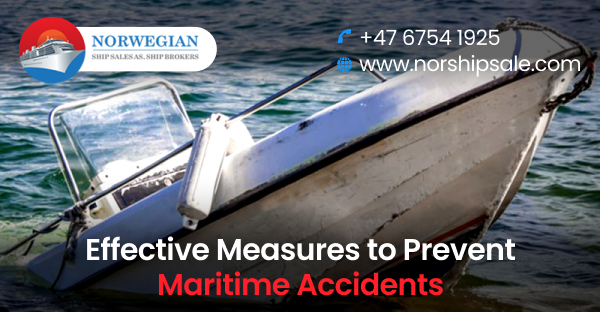Maritime shipping is the backbone of the global economy. From manufacturing raw materials to completed goods, large ships and vessels are used for various transporting goods across oceans. But it is also true that maritime shipping involves a small percentage of risks. Seafaring is an unpredictable adventure and accidents can sometimes happen. If you’re thinking about investing in high speed ferries for sale to expand your business, it is important to also be aware of the potential risks. In this blog, we take a look at what are the common causes of maritime accidents and effective measures that can be undertaken to prevent them.
Most of the maritime accidents are caused by one of these reasons:
- Fatigue
- Drugs and alcohol use
- Unsecured equipment
- Weather conditions
- Lack of adequate training
- Inability to make rational decisions
Preventing the Risk of Maritime Accidents
Minimizing Fatigue
Fatigue is among the most common causes of marine accidents. Long duty hours coupled with lack of adequate sleep and rest can negatively affect the performance of ship workers. They are tired, which can decrease their alertness and concentration levels. Workers should refuse duty if they feel exhausted and replace themselves with another qualified worker. The solution is to limit the working hours for every ship worker to ensure they get enough rest between two shifts.
Use of Medication While Operating Vessels
Marine workers should refrain from using any type of medication without consulting a medical professional first. Wrongful usage of drugs can hamper the health of workers, making them feel sluggish and tired. If they continue to work in such conditions, it can lead to unfortunate accidents on board.
Standard Maintenance and Repair Procedures
Equipment failure is one of the most common causes which often leads to a ship breakdown. The best way to prevent this is to follow a strict maintenance schedule for the ship’s machinery parts. All marine equipment must periodically go through quality checks. There are trained individuals who follow standardized procedures for the testing, maintenance, repair and replacement of the ship’s equipment. It is crucial to maintain the integrity of a ship’s machinery to ensure the vessel’s safe and smooth performance. Regular maintenance minimizes the chances of sudden equipment failure.
Operational Testing Procedures
While testing equipment, they should always be performed at optimum conditions to verify the quality and reliability of the repair and maintenance work done. Testing should ideally be done at the usual operating pressures and loads. Alarms and sensors within the ship must also be tested routinely.
Underestimating Strong Currents
Seafarers can often face a difficult challenge when navigating through strong currents in deep sea water. When the currents are too powerful, the ability to move the vessel through water diminishes significantly. The risk factor increases in case of dragging the anchor or parting lines. In such conditions, ship operators must assess the situation carefully before moving forward. Ships must also obey the instructions of authorities such as the Coast Guard. It is always advised to practice caution when navigating a ship through string powerful currents.
Conclusion
There has been an increase in demand for high speed ferries for sale due to more ships being used for the shipping trade. Being aware of the ways to prevent maritime accidents can be opportune in this sector. To purchase a new vessel, contact Norwegian Ship Sales for a consult.


